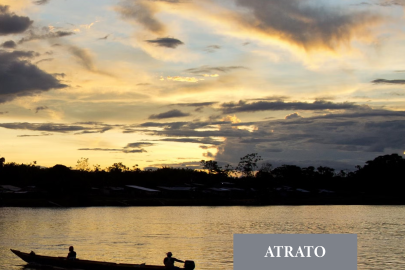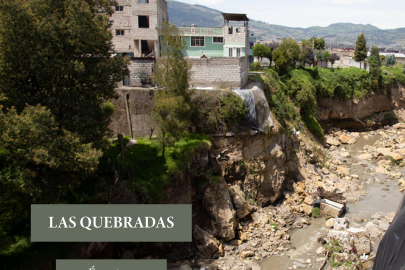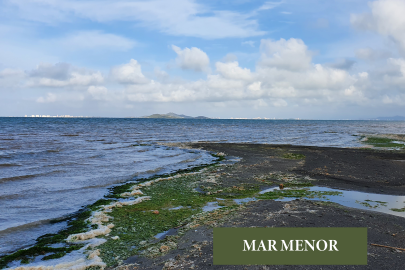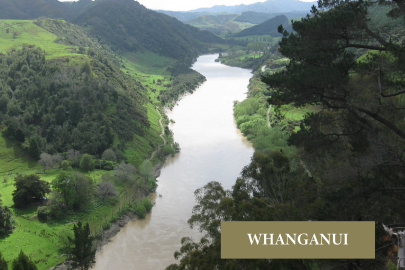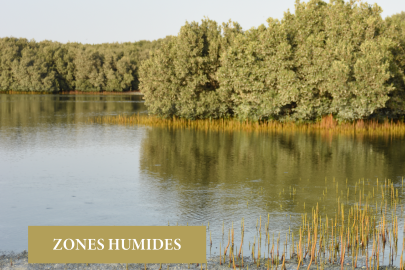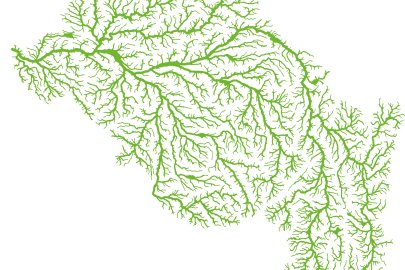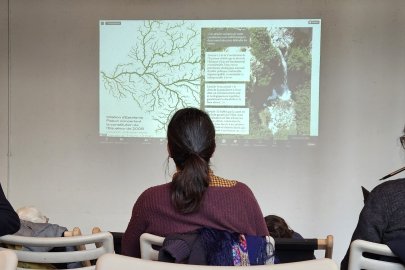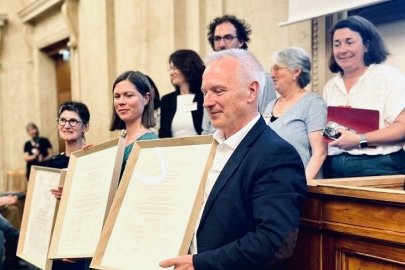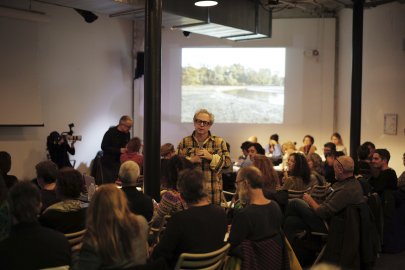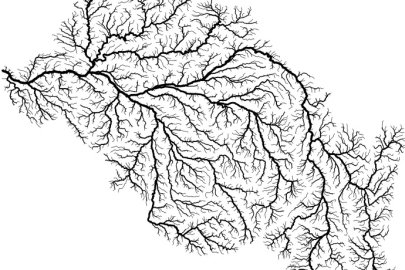As the coordinator of the Toward an International of Rivers… project, conceived and led by Camille de Toledo, Caroline Lanciaux looks back here on a key milestone, at the confluence of several civic, scientific, and political dynamics - a moment when the work carried out on the rights of rivers intersected with the French parliamentary arena.

On April 30, 2025, we were at the National Assembly to discuss the rights of nature at the invitation of Charles Fournier, Member of Parliament for Indre-et-Loire. On this occasion, the Council of Witnesses—a group of 12 citizens involved for two years in the Toward an International of Rivers project—presented to him, as well as to MPs Lisa Belluco and Chantal Jourdan, the three citizen-led legislative proposals to recognize the Loire, its estuary, and more broadly natural entities as subjects of law.
At the end of the symposium, Charles Fournier suggested exploring the possibility of launching a parliamentary information mission to study the issue, prepare the review of such a law, and produce an information report.
The parliamentary calendar did not allow this mission to be organized, but Charles Fournier nevertheless wished to introduce the debate during the vote on the 2026 Finance Bill. An amendment tabled by Charles Fournier and several MPs from the Ecologist and Social Group proposed the creation of a territorial experimentation fund dedicated to the rights and governance of rivers and waterways. It was examined and adopted on November 13 by the Finance Committee.
The aim is to enable territories to test new forms of ecological governance, inspired by initiatives already underway in several countries (New Zealand, Colombia, Canada, and Spain, among others), where natural entities have been recognized as legal subjects.
This fund, endowed with 5 million euros, would make it possible to finance:
➡️ local experiments involving local authorities, public institutions, associations, scientists, and citizens;
➡️ the creation of “human faces” (guardians) for waterways, responsible for representing the intrinsic interests of rivers and streams, including before the courts;
➡️ improved protection of aquatic biodiversity and water resources.
By financing these experiments, the amendment also seeks to generate new savings through the environmental, ecological, and economic benefits that better protection of ecosystems would bring to local, human, and ecological communities.
The Circle of Jurists on the Rights of Nature, several of whose members collaborate with us on the International of Rivers project, was able—at the request of the MPs—to contribute its expertise to the drafting of this amendment.
This parliamentary initiative marks a new step in the recognition of the Rights of Nature in France, following the constitutional bill submitted last September by Senator Monique de Marco.
International Overview of the Rights of Ecosystems
Across the world, major advances are now recognizing ecosystems as subjects of law: the Whanganui in New Zealand, the Atrato in Colombia, as well as several rivers and lagoons in Canada and Spain, today have guardians responsible for representing their interests. These initiatives demonstrate that another form of governance of living environments is possible—one in which ecosystems are no longer viewed merely as resources, but as entities to be legally protected and defended.
